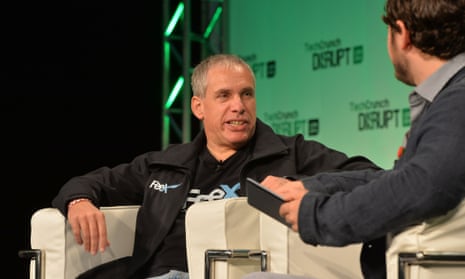Last year Uri Levine sold Waze, a user-generated mapping app, to Google for a reported $1.1bn. But rather than settle for a cushy job with the tech giant, Levine proceeded to start up FeeX, an app to reduce the fees on financial services that promises to be equally disruptive.
The serial entrepreneur has now shared his advice for budding entrepreneurs looking to grow their startup. Speaking at the World Wide Web Conference in Florence last week, Levine revealed that he hated being a CEO and his six-step guide to success.
Who are your users and what is their problem?
Levine said that it is essential that founders validate that the problem they are trying to address “is the problem being shared by a lot of users”. With both Waze and FeeX, Levine saw clear problems that he wanted to tackle. Waze allows drivers to dodge traffic queues and FeeX offers savers the ability to cut down their investment fees.
Make your mistakes fast
While Levine didn’t go into detail about the mistakes he made establishing Waze, he says that entrepreneurs shouldn’t be afraid of making them: “The faster that we make them, the better that we are at solving them. As a result we become a faster moving company.”
The DNA and the mission defines the journey
Growing a startup can become a life long, all-consuming pursuit. Levine says you have to play the long game: “If the journey is not the journey of your lifetime it is going to be very hard to sustain that.” He adds that it is a combination of the goal and the makeup of the idea that defines the journey.
Fall in love with the problem you’re solving, not the solution
When Waze started it ran off PDAs, a now obsolete technology. Smartphones superseded the tech and became the major platform for the app. But that did little to discourage users from using the software, which was seeing uptake of 3-4 million a month before being acquired by Google. Levine said: “Solutions might change over time but as long as the problem exists it’s worth solving it.”
Focus is not what we’re doing. It’s what we’re not doing
In an alternative take on the popular Silicon Valley mantra of starting by doing one thing very, very well, Levine said that it’s easier to say yes to opportunities and that “the hard choices are when you say no”.
The definition of a good product is good retention
Levine urged founders to decide how often they want their users to return to the product and make sure they keep coming back: “If this is daily commuting we would like to see people using the application every day. If this is looking at your investments and retirement account then probably a frequency of once a quarter is right.”
To get weekly news analysis, job alerts and event notifications direct to your inbox, sign up free for Media Network membership.
All Guardian Media Network content is editorially independent except for pieces labelled “Brought to you by” – find out more here.

Comments (…)
Sign in or create your Guardian account to join the discussion